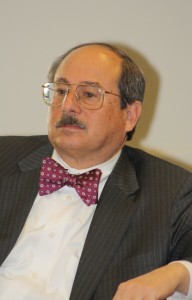By Dave Workman
Senior Editor
CNN and other outlets have raised red flags about the claim by gun control proponents that there have been more than 70 school shootings since the Sandy Hook attack in December 2012.
The news network acknowledged that, in the aftermath of the Reynolds High School shooting in Troutdale, Ore., it used the figure of 74 school shootings in a news report. CNN admitted that it got the figure from Michael Bloomberg’s “Everytown for Gun Safety” organization and that they knew the former mayor is “a passionate and public advocate of gun control.”
Reacting to that, Alan Gottlieb, chairman of the Citizens Committee for the Right to Keep and Bear Arms – and a longtime Bloomberg critic – issued a statement noting, “I’ll bet CNN would never use data from gun rights organizations without first checking it for accuracy.”
However, Gottlieb congratulated CNN for at least checking after the fact.
“Bloomberg should change the name of his $50 million ‘grassroots’ political machine to ‘Every Liar for Gun Safety’,” Gottlieb observed. “This is hardly the first time that anti-gunners have tried to bamboozle the public with deceptive data.”
For many years, anti-gunners have used the total figures for all firearms-related deaths in the country as the number of people who die annually from so-called “gun violence.” There is no breakdown separating the number of suicides from murder victims, or from those who are killed by police or private citizens in self-defense or to prevent a crime, or the people who die in firearms accidents.
“Sadly,” he said, “this episode not only reveals how gun prohibitionists try to fool people with questionable information, it also shows that the liberal, anti-gun-rights media all-too-willingly accepts such information at face value. What does that say about press partisanship, if not press gullibility? Let’s hope that from now on, CNN and other news agencies challenge information from anti-gun organizations before treating it like scripture.”
CNN was actually not the first to question the figure. A journalist named Charles Johnson first sent Twitter messages challenging individual incidents on a list that had been circulated by the Everytown group, and subsequently used by Shannon Watts, founder and head of Moms Demand Action for Gun Sense in America, a Bloomberg-funded organization.
The figure was also the cornerstone of an editorial that appeared in the Salem, Ore., Statesman Journal on the day following the Troutdale shooting.
CNN’s analysis has focused on just 15 of the incidents on the Everytown list that appear to be genuine school shootings. Many others on that list appear questionable at best as being bonafide school shootings. Questions have been raised about nearly 40 of the other incidents on the list, which include gang-related incidents, one Tennessee homicide that may have been domestic violence two weeks before the school year opened, and other incidents that were off-campus but in the vicinity of a school. The list also includes suicides.
Watts repeated the claim of 74 shootings in an Op-Ed piece she wrote for the New York Daily News that appeared one day after the Troutdale incident. The Blaze published several Twitter notes from journalist Johnson that debunked the Everytown/MDA claim. CNN couched its report by defining the 15 shootings it looked at as being “similar” to the Reynolds High School case.
Authorities in Multnomah County identified the Reynolds High shooter as 15-year-old Jared Michael Padgett. His victim was Emilio Hoffman, and teacher Todd Rispler was wounded but made his way to the school office to sound the alarm, bringing “good guys with guns” to the scene, where they confronted the teen gunman who was armed with an AR-15 rifle and a pistol.
At a press briefing, Lt. Steve Alexander of the Multnomah County Sheriff’s Office reported that Padgett brought the guns from home, where they were securely stored. “He defeated security measures,” Alexander said.
Authorities were still trying to determine a motive for the incident.
CNN’s snooping could open the door to more press scrutiny of data from gun control lobbying organizations. If so, advocates like Gottlieb suggest it is long overdue.
If the public begins questioning the honesty and reliability of information from gun prohibitionists, they will have more difficulty in selling their arguments.




